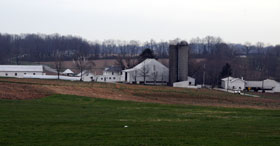Okay. Here’s a new social network for animal agribusiness. What do you think? Good idea? It looks like it has internal special interest groups. Is this going to be of sufficient value/benefit to draw in significant participation? Although I’m a big fan of social networking I have wondered how these types of online communities are faring. I’ve seen some that are very active on some very niche topics. Will producers who are involved in Facebook utilize more than one social network? If you’re a producer what are your thoughts? Have you become a member of AnimalAgNet? If so, what do you like/not like?
WATT has announced the launch of www.AnimalAgNet.com, an online social networking community for the global agribusiness industry. The site is created for producers, processors, animal health and nutrition professionals, animal feed manufacturers, marketers and others working in any phase of the global poultry, pig and animal feed sectors.
Animal agribusiness professionals are encouraged to visit AnimalAgNet.com and join a community of their interest, view breaking industry news, ask questions, share ideas, network and/or catch up with their peers, or post photos and videos. Groups exist for poultry production, regulatory issues, animal health, feed trends, environmental issues and pig production. Community members are invited to start their own blog, form their own groups and invite their peers to join.
“AnimalAgNet is designed as a place for animal agribusiness professionals to network and share knowledge in a safe, business-only environment,” said WATT Vice President of Content Bruce Plantz.


 Have you played
Have you played  I saw my first steeplechase races live and exciting today in Monkton, MD thanks to the
I saw my first steeplechase races live and exciting today in Monkton, MD thanks to the  The race was pretty exciting but I don’t have the winner’s name. If anyone knows they’re welcome to leave it in the comments.
The race was pretty exciting but I don’t have the winner’s name. If anyone knows they’re welcome to leave it in the comments. This is what the John Deere Drive Green Utility Tractor Show is all about. Driving John Deere equipment. Today’s show stop is set up perfectly for people like Carl Daly, here to test drive the new line of utility tractors and vehicles. We’ll meet Carl in a video interview I’ll post with him on the
This is what the John Deere Drive Green Utility Tractor Show is all about. Driving John Deere equipment. Today’s show stop is set up perfectly for people like Carl Daly, here to test drive the new line of utility tractors and vehicles. We’ll meet Carl in a video interview I’ll post with him on the  If you’ve got to work on Good Friday at least doing it in a place this pretty helps. This is just one of the farms in the Oxford, PA area.
If you’ve got to work on Good Friday at least doing it in a place this pretty helps. This is just one of the farms in the Oxford, PA area. Hello non-profits. Here’s a chance to obtain a grant for public relations services. The folks at
Hello non-profits. Here’s a chance to obtain a grant for public relations services. The folks at  Every time the USDA issues an important crop report, the
Every time the USDA issues an important crop report, the  Today the call focused on the
Today the call focused on the  Speaking of NAMA. I’ll be the NAMA blogger once again this year and you can find posts on the
Speaking of NAMA. I’ll be the NAMA blogger once again this year and you can find posts on the